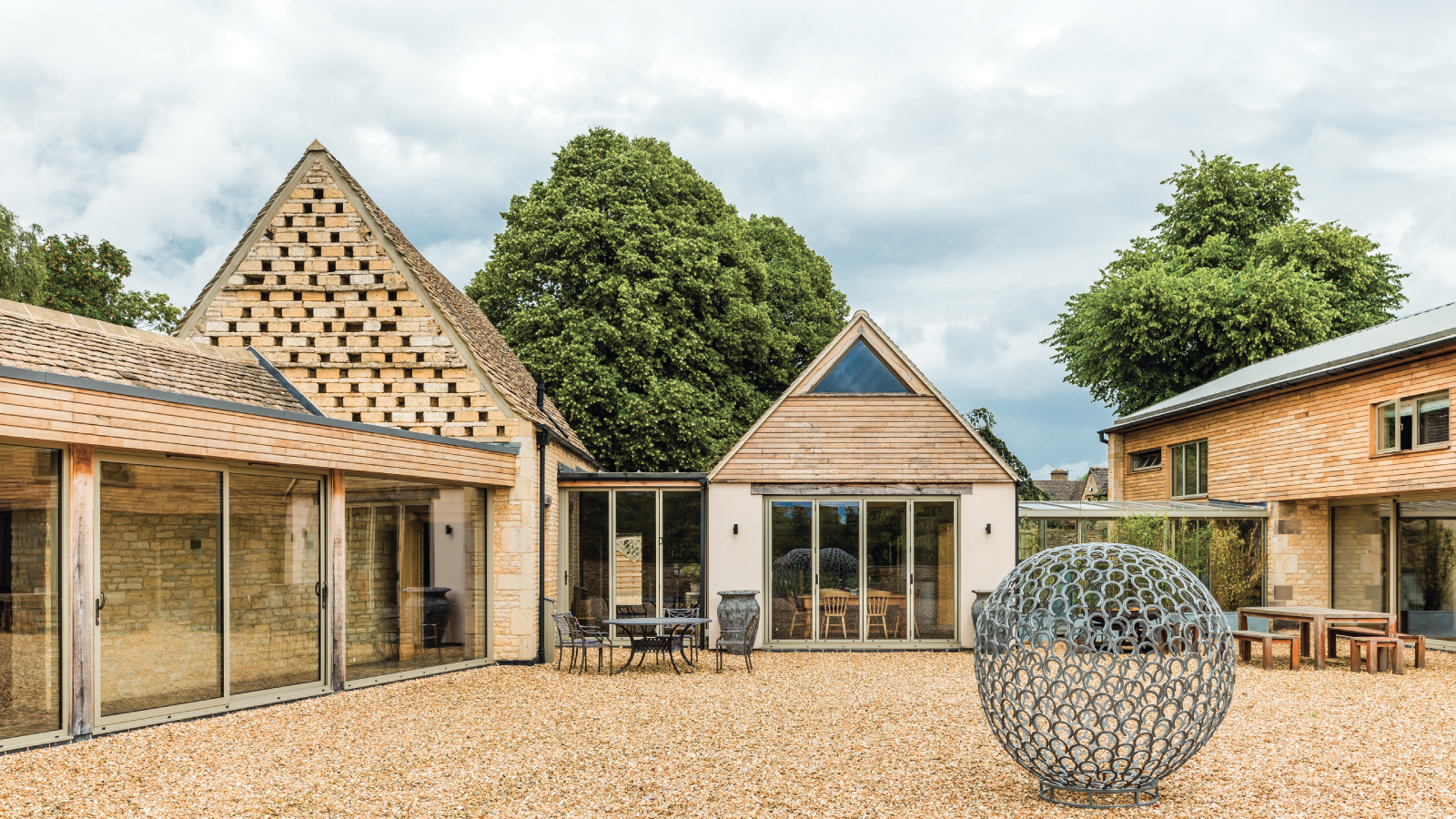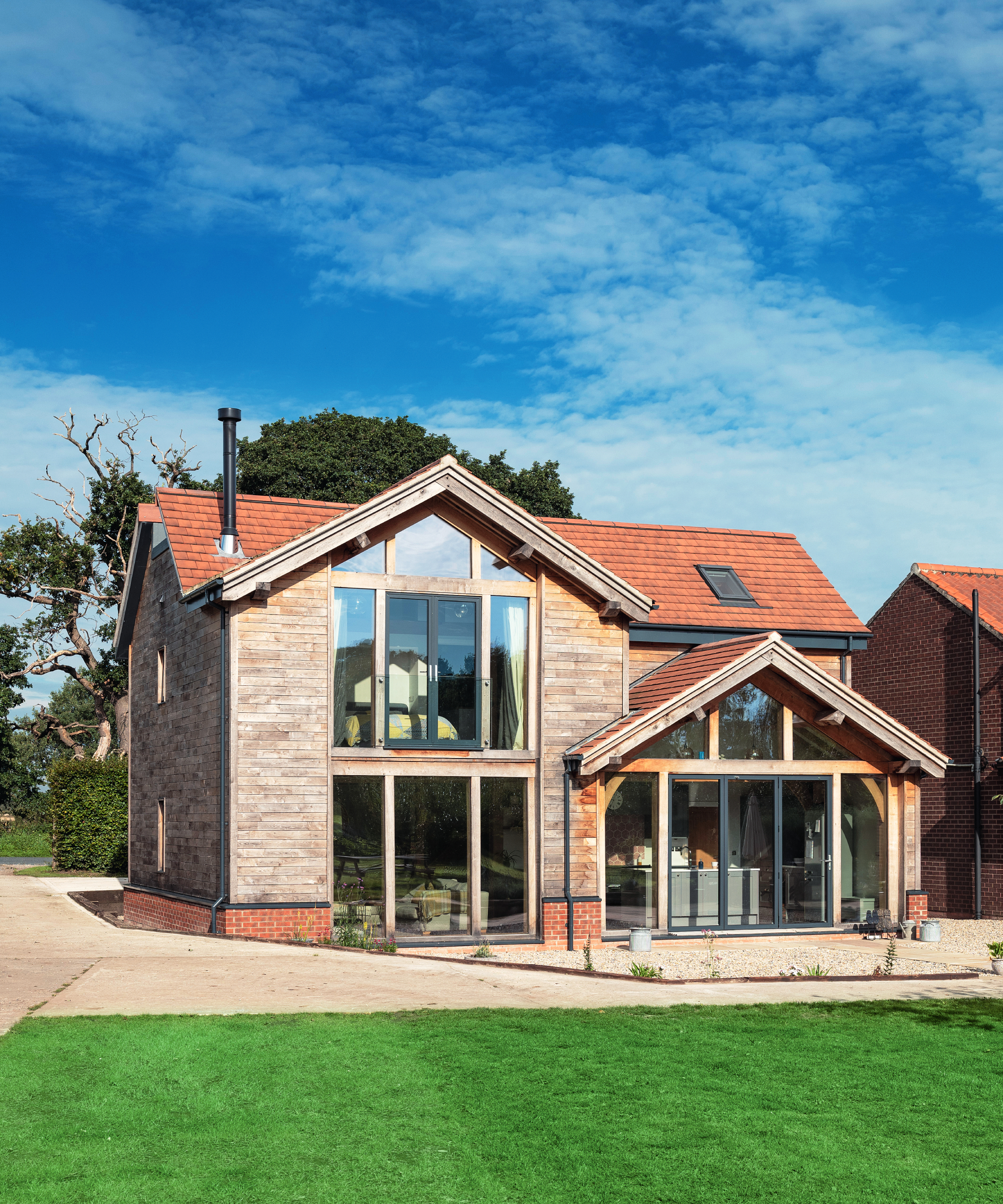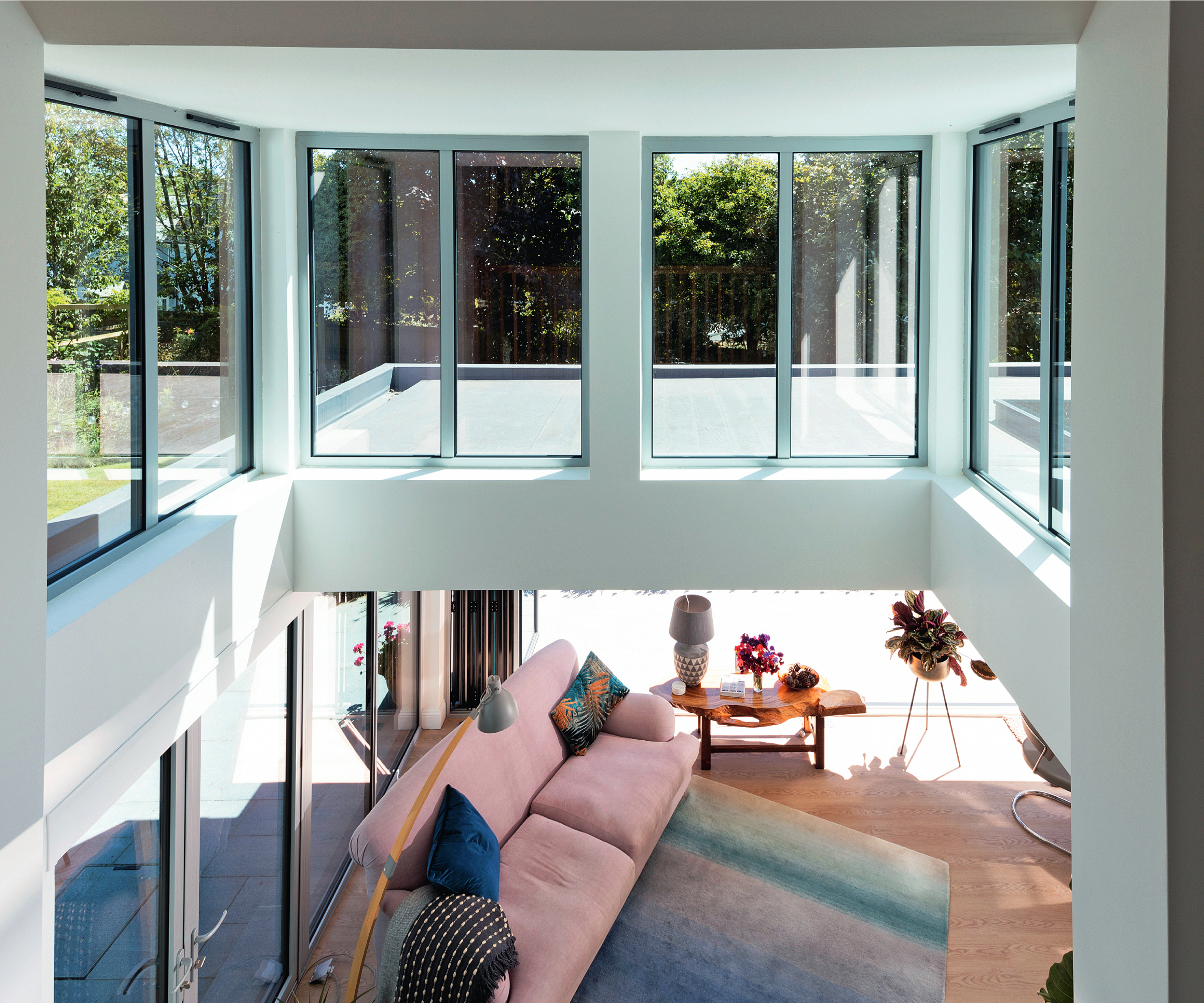Pre-application advice: What is it and does it guarantee planning permission or not?
Planning consultant, Simon Rix explains everything you need to know about pre-application advice including its pros, cons and when it makes good sense to use it

Bring your dream home to life with expert advice, how to guides and design inspiration. Sign up for our newsletter and get two free tickets to a Homebuilding & Renovating Show near you.
You are now subscribed
Your newsletter sign-up was successful
Embarking on a custom-build project or planning significant home improvements can be an exciting but complex journey. One of the early steps in the journey towards getting planning permission is often to get pre-application advice to see how feasible your project is.
There are two main options for this. Some planning consultants will provide a planning appraisal. This is an independent expert assessment of the chances of getting consent.
But local planning authorities (usually your local council), offer a paid-for pre-application advice service too. Planning expert, Simon Rix, looks at the pros and cons of taking this route to see if it will help guarantee more success for your full application.
What is pre-application advice?
Put simply, pre-application advice is an informal but often invaluable step in the planning process, offered by local planning authorities (LPAs) to individuals or developers considering a new self build, extension, or significant renovation. This service allows you to present initial plans and ideas to a planning officer before submitting a formal planning application.
Seeking pre-application advice can save time, reduce costs, and increase the chances of a successful outcome by highlighting potential issues early on. It also helps applicants better understand what the LPA will expect in terms of design, layout, and environmental considerations, hopefully making the formal application process smoother.
But, what's involved and is it always worth adding this extra stage into the process?
Key points to consider
One of the main things to understand is that the local council is not bound to stick to the opinions expressed in their pre-application advice when it comes to any subsequent planning application.
Bring your dream home to life with expert advice, how to guides and design inspiration. Sign up for our newsletter and get two free tickets to a Homebuilding & Renovating Show near you.
For example, I’ve had people come to me for help after they got a refusal following positive pre-application advice from their council. And I’ve got planning consent for a number of clients after they’ve had negative pre-application advice for a proposal.
So, it’s important to remember, pre-application advice from a council is just the initial opinion of quite often a junior council officer, given without the benefit of the full consideration that must occur during a full planning application. Once you go through the full planning application process, the outcome may well be different.
That said, there can be benefits from getting pre-app advice from a council, which I cover below.
If you do go down this route, my main recommendations would be to get a planning consultant to both help you with the pre-app submission but also, and more importantly, to review the advice that the council provides.
This is because as planning consultants we’ll be able to translate the advice letter into plain English as well as spot any deficiencies or even mistakes that might be included in the advice, and to highlight the key aspects that really should be followed. All of this will be really useful for the subsequent planning application.

When to seek pre-application advice
Pre-application advice is particularly beneficial at the early stages of planning a project, whether you're building a custom home or extending an existing property.
If you're considering significant alterations or different types of extensions – such as adding multiple rooms, changing the building’s footprint, or creating new access points – pre-application advice can help clarify if these changes align with local planning policies.
It can be especially helpful when proposing developments in sensitive areas, like conservation zones, Green Belt land, or projects with so-called heritage constraints, such as listed buildings or those in World Heritage Site areas.
These types of early discussions can identify whether your proposal aligns with policy requirements or if adjustments are needed to gain approval.
Benefits of seeking pre-application advice
For custom build and self-build projects, pre-application advice can be particularly advantageous as building a home from scratch, or significantly modifying an existing property, can be a complex process involving multiple regulations and planning considerations.
Engaging with the planning authority early on, through the pre-application process, allows potential issues, such as access arrangements, or design compatibility with the surrounding environment, to be identified before significant costs are incurred. It can also provide insight into what changes or concessions might be required to gain approval, ultimately saving time and avoiding the frustration of a refused application.
Additionally, pre-application engagement can offer reassurance that your plans are on the right track, helping to clarify the necessary steps for approval. This is particularly useful for those new to the planning process, as it reduces uncertainty and allows for more informed decision-making throughout the build.
Is it worth considering for extension and home improvements?
Although it's easy to assume pre-application advice only relates to self build or new projects, it's not just for large-scale developments; it can be equally valuable for home extensions, loft conversions, or adding outbuildings.
These smaller-scale projects still need to comply with local planning policies and might affect neighbours, especially if they alter views, light, or privacy. Engaging with planning officers can provide clarity on these aspects and suggest ways to modify plans to minimise impacts or meet local requirements.
This is especially important in more densely populated areas where the potential impact on neighbouring properties may be more significant.

The pre-application advice process
The process generally involves these key steps:
- Contact the Local Planning Authority: Reach out to your LPA to initiate the process. Each authority may have its own procedures and fees for pre-application advice
- Provide initial details: Submit a basic outline of your proposed development, including details such as the location, the type of development, and any preliminary design ideas or sketches you may have
- Meet with a planning officer: Many LPAs offer the opportunity to meet with a planning officer to discuss the proposal in more detail. This can be an invaluable opportunity to ask questions and clarify potential hurdles
- Receive feedback and advice: The planning officer will typically provide written feedback summarising their views, identifying any issues, and suggesting changes to improve the likelihood of approval
What to include in submission
Preparing your pre-application submission is very important. Key items to include in your enquiry are:
- Site plans: Provide a clear map of the site, indicating the location of proposed developments
- Design ideas: Sketches or initial designs can help planning officers visualise the project
- Environmental considerations: Outline any potential impacts on the environment, such as changes to natural habitats or drainage
- Design and access statement: While not always required at the pre-application stage, a well-prepared design and access statement can explain how the proposed development would fit within the site context and how access needs could be addressed
Including this information helps ensure that the planning officer can provide detailed and useful feedback, making the most of the advice process.
Best practise
A key part of the pre-application process is understanding local planning policies that may impact your project. Each LPA has its own set of guidelines, which can include restrictions related to building heights, materials, and environmental impacts.
For example, Green Belt restrictions focus on preserving open space, while conservation areas may have stringent rules about maintaining architectural character.
Researching these policies ahead of your pre-application meeting can help ensure that your plans align with local priorities, making for a more productive discussion.
Tips for attending the pre-app meeting
To get the most out of a pre-application meeting, consider the following tips:
- Be clear and concise: Clearly outline your vision and goals for the project.
- Ask specific questions: Prepare a list of questions or concerns about particular aspects of your proposal, such as design elements or site access.
- Take notes: During the meeting, make sure to record the advice given so that you can refer back to it when refining your application.
- Be open to feedback: Use the feedback to adjust your plans and strengthen your formal application.

Fees for pre-application advice
The costs of pre-application advice in the UK can vary significantly depending on the local planning authority, the scale and complexity of the proposed development, and the type of advice sought.
For smaller projects like householder applications, which include extensions, loft conversions, or minor alterations, fees are generally lower and typically range from £50 to £200 for written advice or a simple meeting with a planning officer. These rates apply to developments that involve changes to a single residential property.
For more substantial projects, such as whole new custom or self build homes, the fees tend to be higher, reflecting the additional time and detail required to assess these proposals. Costs can range from £200 to £1,000, depending on the scope of the development, and may increase if a site visit is required or if the process involves multiple meetings or detailed written feedback.
In the case of major developments, such as multiple new dwellings or commercial projects, the fees can range from £1,000 upwards. This is due to the need for more comprehensive assessment, potentially involving different departments within the planning authority, like transport or environmental impact specialists.
To find out the exact fees for pre-application advice, it’s best to visit the website of your local planning authority. They usually have a section on pre-application services with a fee schedule and details on what is included. The fees are typically paid when submitting a pre-application enquiry, either online or through other specified payment methods.
While there is an upfront cost for pre-application advice, the potential savings in time and resources from avoiding a refused planning application can make it a worthwhile investment.
Preparing for your full planning application
After receiving pre-application advice, it’s time to use the feedback to refine your plans and prepare for the full planning application. Address any concerns or suggestions from the planning officer and ensure that your application documentation, including detailed site plans, design and access statements, and impact assessments, reflects the guidance you’ve received.
Incorporating this advice into your formal application increases the chances of a smooth approval process and demonstrates to the planning authority that you have taken their recommendations on board.
FAQs
Are there any downsides to using the pre-application process?
Although there are advantages to seeking pre-application advice, it's not always as clear-cut as it would seem, says planning consultant, Ken Dijksman. "In my experience, there are several critical problems with pre-application advice," he says, with timing being a key concern.
"It can take a long time to get a response – sometimes even longer than a planning application (eight weeks)," says Ken. Added to this is potential lack of consistency across LPAs. "The time that is devoted to assessing your proposal can vary dramatically between different authorities and you cannot assume a thorough and careful examination of what you intend to do
"On the scale of a local authority’s priorities, giving you advice is much lower down than actually dealing with a planning application," he explains. "Therefore, the resources they devote to it in terms of internal consultations and team discussions will almost certainly be less than if you made an application.
"It is also quite likely that the planning officer who gave the advice will not deal with the planning application, and as it is given to you on a ‘without prejudice’ basis, the local authority is not duty bound to follow this advice when dealing with your subsequent application," says Ken.
It is therefore very important to see the process for what it is – advice rather than approval.
If you are concerned your plans may meet with some objection, you could also use the process as more of a sounding board, taking a less is more approach, suggests Ken.
"Perhaps the least risky way of taking advantage of pre-application advice services is not to give too much away in relation to what you’re actually proposing. If you’re trying to establish whether a new dwelling in a particular location might get planning permission then talk in general terms and have indicative plans," he says.
"Try and tease out of the planning officer the key issues that they think are most relevant. You can then extract information from them, without evoking their defensive response about the specifics of your scheme."

Ken, a former planning officer, is a planning consultant and owner of Dijksman Planning LLP. He is also the author of The Planning Game.
What role can a planning consultant play in seeking pre-application advice?
In some cases, seeking the support of a planning consultant can be beneficial before the pre-application stage. They have in-depth knowledge of local and national planning policies and can help navigate complex issues, especially for more challenging projects.
They can prepare documentation, liaise with the planning authority, and ensure that your plans are as robust as possible before the pre-application stage, increasing the likelihood of a positive outcome. Their expertise can also be valuable if your project involves listed buildings, conservation areas, or complicated site conditions.
"This is something I can testify to be true, having used the services of a planning consultant when extending a listed building," says Sarah Harley, Assistant Editor of Homebuilding.co.uk. "Without them, I'm sure we would not have received approval for the plans, as it was his in-depth knowledge that allowed us to work with the architect to create a contemporary design we were confident would gain approval. Although we still had to go through a Planning Committee, we were granted full permission thanks to having the knowledge to mitigate any potential issues early on."
Can I just make a full planning application instead?
Although pre-application advice can be beneficial, you could also consider just making an initial planning application and revising this to suit.
"If you make an application, you can withdraw it if they don’t like it and avoid the blight of a refusal," confirms Ken Dijksman. "You also get a free go if you apply for broadly the same proposal within a year.
"You can therefore use an initial application as a mechanism for exposing the key issues and to gain an understanding as to what you’re likely to be able to build. It will be dealt with thoroughly, properly and seriously, and importantly if they refuse it, you have the option to appeal."
It's an alternative means of getting feedback on your proposed plans, but comes with potentially more risk as pre-application advice, and cost. Having to pay for a full re-work of your dream home could be costly both in terms of time and money, whereas pre-application advice may help to create a far clearer picture before your architect starts the design process.
Seeking pre-application advice can help you navigate the complexities of the planning process, reduce the risk of refusal, avoid planning permission mistakes and provide a clearer understanding of what is required for a successful application.
By consulting with planning professionals and engaging with your local authority early, you can ensure that your project is well-prepared and meets local planning requirements, hopefully giving you a smoother path to achieving your objectives.
“Pre-application advice is basically all about reducing risk,” concludes architect Darren Bray from PAD Studio.
“If you’re not up to date with the local planning office or policies, or any potential planning reforms, and you go straight to submitting a formal application it can throw up all sorts of things that a pre-app could have ironed out,” explains Darren. “Involving planning officers from the outset makes them feel part of the process and can be very positive.”
Simon Rix is a professional planning consultant, who began his career working in local government in the 1990s. He was a council officer and later an elected councillor, so he knows how the planning system works from both sides. He went on to set up Planix.UK Planning Consultants Ltd; a consultancy company that advises self builders, home extenders and those taking on small to medium-sized building projects on planning permission.

